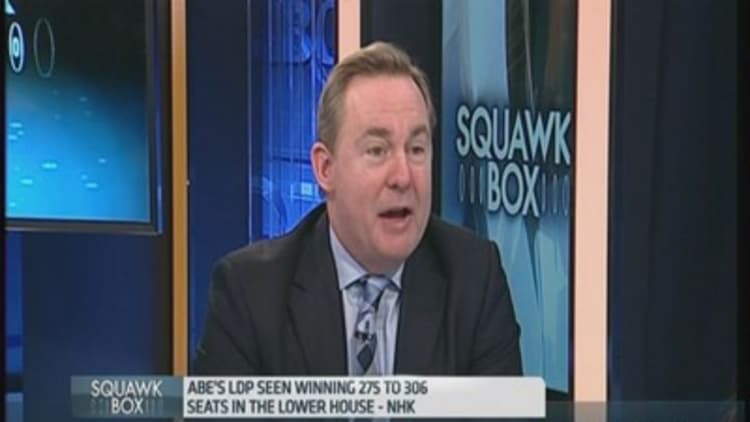A consumption tax hike may have tipped Japan into recession in 2014, but some luxury brands are immune to the doom, with sales at Italian carmaker Maserati tripling this year and foreign tourists helping to make up for the slack for high-end brands.
"Luxury is recession resistant," said Fabrizio Cazzoli, Maserati Japan's Representative Director. Buying an over 10 million yen (around US$83,000) car is an "emotional decision – if anything, higher specification models have been selling better," he said.
Maserati buyers' emotions must be running quite high to stay on track. Japan's economy shrank by 1.6 percent in the three months to the end of September, contracting for a second straight quarter.
Overall car sales hit by tax hike
The likely contraction culprit, April's three-percentage-point consumption tax hike to 8 percent, also put the kibosh on Japan's car sales. Between April and September, overall new car registrations dropped 2.8 percent on-year to 2.47 million vehicles, according to data from Japan Automobile Dealers Association; imported-car registrations were down 9.1 percent at 124,743 vehicles, according to Japan Automobile Importers Association (JAIA) figures.
Read More What recession? Japan Inc is on a roll
But not at Maserati: the company sold 640 cars, up 347.8 percent on-year, during the April-to-September period. Year-to-November sales more than quadrupled from a year earlier to 1,224 cars. Maserati Japan's Cazzoli says he expects to sell 1,300 cars in 2014 and 1,500 in 2015.
A renewed lineup and distribution network have also helped drive up sales. The new Quattroporte sedan, Granturismo sports coupe, and the entry-level Ghibli sedan have seen "sales growth everywhere," said Cazolli. Globally, Maserati is expecting to sell more than 35,000 cars in 2014, up from 15,400 in 2013, according to a Reuters report.

Sales of imported cars in Japan climbed 22.9 percent in the fiscal year ending March 2014, ahead of April's tax hike. The market is dominated by the German heavyweights: Read More and its Audi and Porsche brands, Mercedes-Benz and BMW combined accounted for around 80 percent of new imported car registrations, according to JAIA's data.
Foreign tourists make up for domestic slack
Other posh swag hasn't been able to dodge the tax bite.
Sales of luxury items, such as jewelry, watches and artwork, have dropped 12.8 percent on-year, after nearly nearly tripling in the twelve months ahead of April's consumption tax hike, according to Makoto Yamada, a spokesperson for Isetan Mitsukoshi Holdings, one of Japan's biggest department store groups.
Read More Asia's top destination for 2015 is…
Still there is one bright spot: foreign tourists. This December, sales of luxury items at Isetan-Mitsukoshi's flagship store in Ginza, particularly popular with tourists, jumped 26 percent on-year, said Yamada. Spending by foreign tourists at Japanese department stories soared by 256.4 percent in November, driven by particularly strong demand for high-end brands and by mainland Chinese shoppers, according to the latest figures available from Japan Department Store Association (JDSA).
Indeed, they keep on coming, and spending. Government data shows the number of inbound foreign tourists jumped by 25.3 percent to 3.48 million and their total spending soared 41.2 percent to a record 551 billion yen (US$4.57 billion) between July and September.
Japanese cities have become the top destinations for Asia-Pacific travelers, Hotels.com said in December, with the weaker yen making the country more attractive -- and around 15 percent cheaper.

